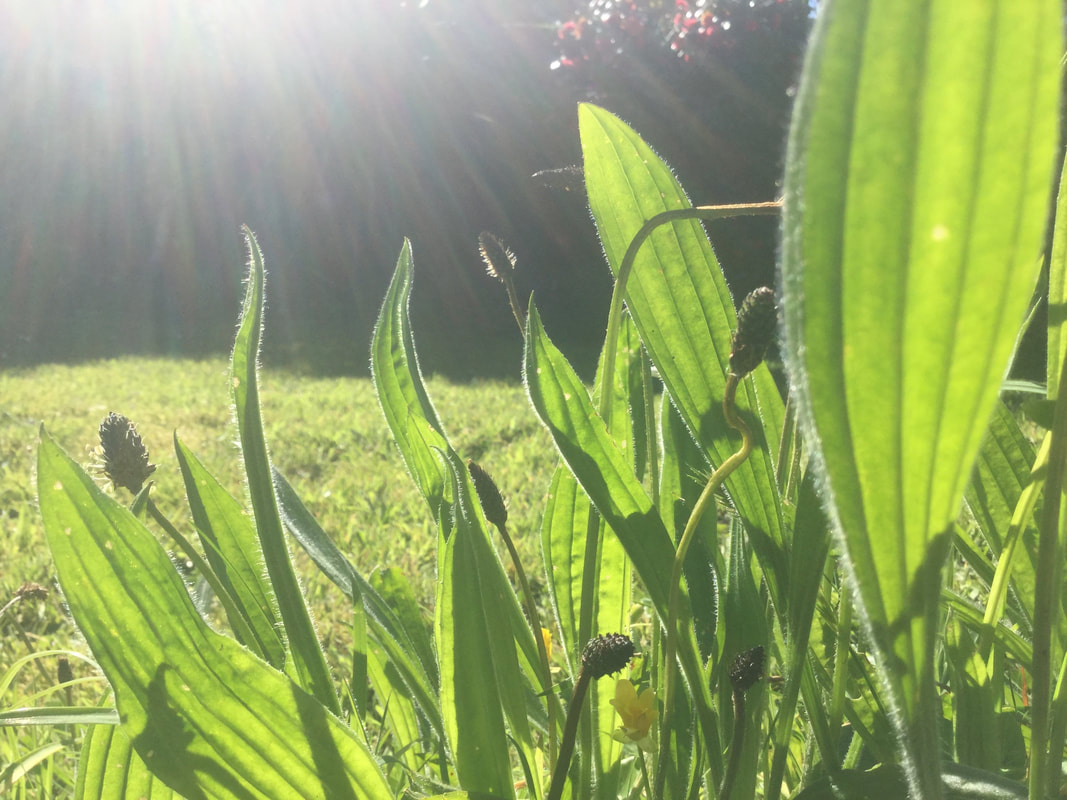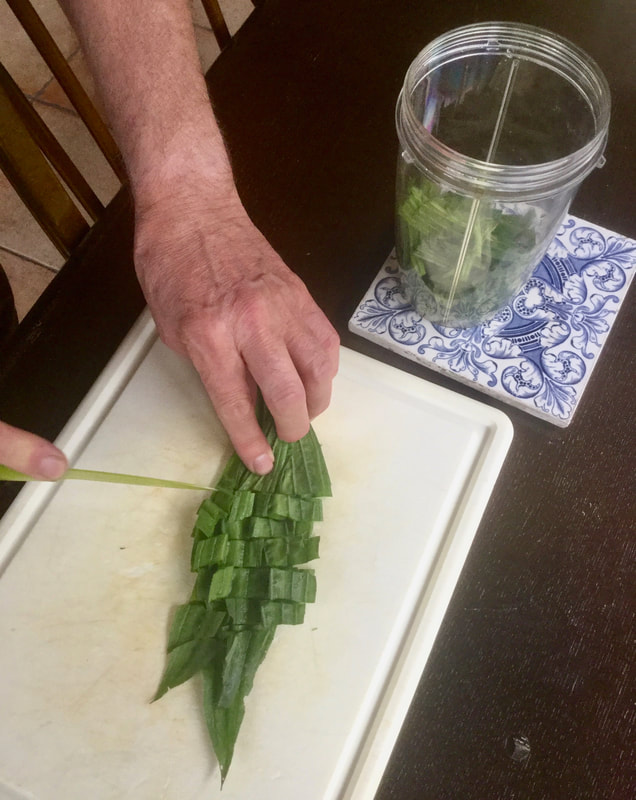PLANTAIN
Plantain comes from the family of Plantaginaceae and Plantago lanceolata is common to British countryside and gardens.
Plantain (Plantago lanceolata) leaf, is the seen in the illustration above, it can be easily distinguished by its distinctive lance like leaves. Its cousin Plantago major has broader leaves that are less pointed, but the actions of both plants are similar.
Constituents:
The leaves contain iridoids (aucubin, catapol), mucilage, phenols, flavonoids (apigenin, scutellarin, baicalein, nepetin, plantagoside), glycosides, tannins, silica, coumarins, vitamin C, potassium, calcium, saponins.
Ayurvedic Properties:
Quality – Guna – light, unctuous & soft
Taste – Rasa – Bitter and astringent
Post digestive effect – Vipak – Pungent
Potency – Virya – Cooling
Doshic signature – Reduces Pitta & Kapha. Increases Vata
Tissue affinity – Rakta (blood) & Rasa (plasma)
Channels – Srotas – Anna (digestive), Prana (respiratory), Mutra (urinary), Rakta (circulatory)
Ayurvedic Actions:
Jawaraghna – reduces fevers
Kasavasahara – relieves coughs and breathing problems
Kustthagna - alleviates skin conditions
Mutrala - diuretic
Raktapitta - curbs bleeding from excess Pitta
Raktashodana – purifies the blood
Ropana – heals wounds
Shirovirechana – clears congestion from the head
Stamphana – dries excessive secretions
Udaraprasamana – relieves allergies
Indications for internal use:
Diarrhoea, gastritis, colitis, GI infections, toxicity, fever, infections, colds, catarrh, allergies, hay fever, insect bites, coughs, bronchitis, chest infections, asthma, tonsillitis, sore throats, glue ear, ear infections, urinary tract infections, prostatitis, menorrhagia, wounds, inflammatory skin problems including acne and roseacea.
Indications for external use:
Astringent to stop bleeding, nosebleeds, anti-inflammatory for stings and insect bites, drawing remedy for infections such as boils and abscesses, infections in teeth and gums.
Dose orally: Tincture 2-4ml tds.
Precautions: Avoid in gastro-oesophageal reflux.
Safety: May decrease levels of Lithium and Carbamezepine. Avoid with Warfarin and other anticoagulants.
Plantain comes from the family of Plantaginaceae and Plantago lanceolata is common to British countryside and gardens.
Plantain (Plantago lanceolata) leaf, is the seen in the illustration above, it can be easily distinguished by its distinctive lance like leaves. Its cousin Plantago major has broader leaves that are less pointed, but the actions of both plants are similar.
Constituents:
The leaves contain iridoids (aucubin, catapol), mucilage, phenols, flavonoids (apigenin, scutellarin, baicalein, nepetin, plantagoside), glycosides, tannins, silica, coumarins, vitamin C, potassium, calcium, saponins.
Ayurvedic Properties:
Quality – Guna – light, unctuous & soft
Taste – Rasa – Bitter and astringent
Post digestive effect – Vipak – Pungent
Potency – Virya – Cooling
Doshic signature – Reduces Pitta & Kapha. Increases Vata
Tissue affinity – Rakta (blood) & Rasa (plasma)
Channels – Srotas – Anna (digestive), Prana (respiratory), Mutra (urinary), Rakta (circulatory)
Ayurvedic Actions:
Jawaraghna – reduces fevers
Kasavasahara – relieves coughs and breathing problems
Kustthagna - alleviates skin conditions
Mutrala - diuretic
Raktapitta - curbs bleeding from excess Pitta
Raktashodana – purifies the blood
Ropana – heals wounds
Shirovirechana – clears congestion from the head
Stamphana – dries excessive secretions
Udaraprasamana – relieves allergies
Indications for internal use:
Diarrhoea, gastritis, colitis, GI infections, toxicity, fever, infections, colds, catarrh, allergies, hay fever, insect bites, coughs, bronchitis, chest infections, asthma, tonsillitis, sore throats, glue ear, ear infections, urinary tract infections, prostatitis, menorrhagia, wounds, inflammatory skin problems including acne and roseacea.
Indications for external use:
Astringent to stop bleeding, nosebleeds, anti-inflammatory for stings and insect bites, drawing remedy for infections such as boils and abscesses, infections in teeth and gums.
Dose orally: Tincture 2-4ml tds.
Precautions: Avoid in gastro-oesophageal reflux.
Safety: May decrease levels of Lithium and Carbamezepine. Avoid with Warfarin and other anticoagulants.


 RSS Feed
RSS Feed
